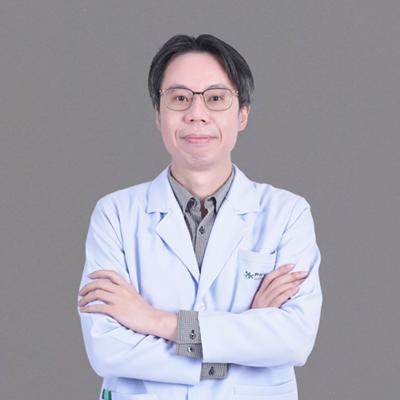
Dr. Duangswang Limmathurotsakul
一般情報
“Currently, we are seeing younger patients with colon cancer and stomach cancer compared to the past. This makes it essential for everyone to be mindful of any changes or abnormalities in their bodies. Today, for high-risk patients, we often perform endoscopy even before symptoms appear. If anything abnormal is detected, it can be addressed during the procedure to prevent it from progressing into cancer. Combined with comprehensive diagnostic tools, this approach allows for highly accurate, clear, and targeted detection, enabling us to closely examine any additional suspicious areas.”
Dr. Duangswang Limmathurotsakul is a specialist in gastroenterology and liver diseases, with expertise in endoscopy and pharmacological treatments. He graduated with a medical degree from Siriraj Medical School. After completing his internship in internal medicine for three years, he pursued further studies in gastroenterology, focusing on the digestive and liver systems. Dr. Duangswang shared the inspiration and experience behind his decision to specialize in this field:
“I chose to study internal medicine because I liked the holistic approach to patient care. It involves analyzing both the disease and the patient as a whole. Treatment focuses on all aspects affecting health, and if a specific issue is identified, patients can be referred to specialists for targeted treatment. I wanted to deepen my knowledge and expertise, and during my training, I had the opportunity to observe endoscopic procedures. I enjoyed the hands-on nature of the procedure and decided to specialize in gastroenterology and hepatology because it combines endoscopy with holistic treatment methods, using both medication and procedures.”
Specialist in gastrointestinal and liver disease treatment
The patients that Dr. Duangswang cares for are primarily divided into three main groups: gastric conditions, intestinal disorders, and liver and bile duct diseases. Each group presents with different symptoms:
“Having studied gastrointestinal and liver diseases, I am able to perform upper gastrointestinal endoscopy (stomach and esophagus) and lower gastrointestinal endoscopy (colonoscopy). Endoscopy is a procedure that allows us to clearly visualize internal organs, analyze and diagnose conditions in conjunction with the patient’s symptoms. It is a simple, non-invasive procedure that requires little time, is very safe, and causes minimal discomfort.”
Endoscopy for gastrointestinal disorders: Clear diagnosis, Precise treatment
In general, upper gastrointestinal endoscopy (stomach or esophagus) is suitable for patients with symptoms in the upper digestive tract, including heartburn, difficulty swallowing, or vomiting blood. If the condition involves the stomach, patients may present with chronic abdominal pain, vomiting blood, unexplained weight loss, or bloating. Upper gastrointestinal endoscopy is highly useful in detecting serious conditions or identifying appropriate treatment options. Early detection of disease leads to better treatment outcomes and a lower risk of complications:
“When abnormal findings are detected and a diagnosis is made, the doctor must communicate effectively with the patient, explaining the disease, treatment process, and self-care instructions. I advise lifestyle changes to reduce risks and avoid triggers that might exacerbate the condition, such as diet, exercise, and sleep. When patients have the right knowledge and understanding, their health maintenance becomes more effective, leading to better recovery, reduced risk of recurrence, and enhanced overall well-being.”
教育
- 2541 – 2547 ปริญญาตรี, ศิริราชพยาบาล มหาวิทยาลัยมหิดล
診療スケジュール
